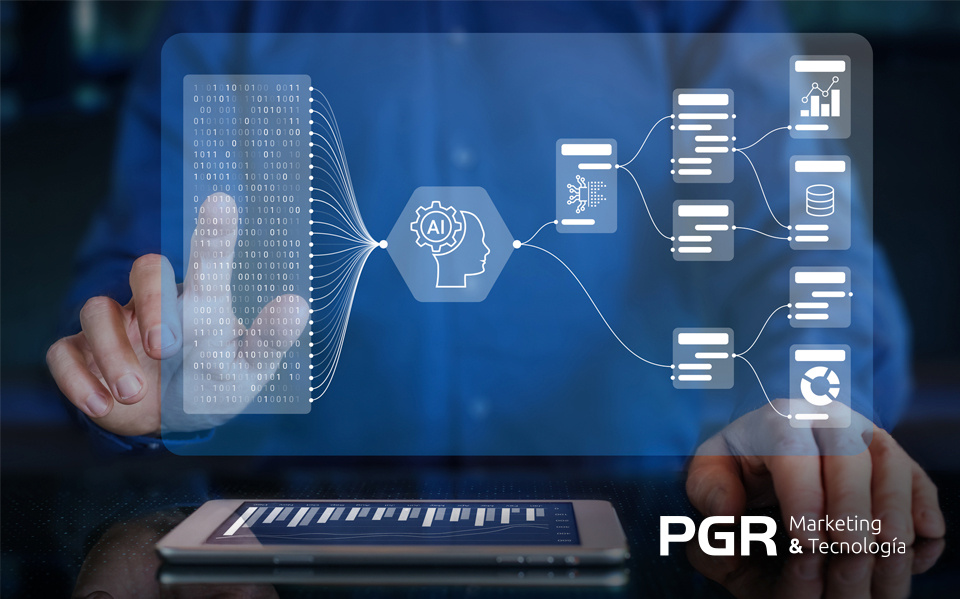The integration of artificial intelligence into digital marketing is not simply a trend, but a fundamental transformation in how brands interact with their audiences.
As artificial intelligence becomes more sophisticated , it offers unique opportunities to personalize the user experience , optimize marketing campaigns, and improve data-driven decision making . For brands looking to stay ahead in the digital age, understanding and intelligently applying artificial intelligence is essential.
Key strategies to integrate AI into marketing
The first key strategy is customization at scale . Artificial intelligence allows brands to analyze large sets of user behavior data in real time, making it easier to create highly personalized user experiences. This can range from personalizing web content to recommending products based on individual user preferences.
By using artificial intelligence to segment audiences more effectively, brands can create campaigns that resonate deeply with different groups, increasing the relevance and effectiveness of their marketing efforts .
Another crucial area where artificial intelligence is making a significant difference is in optimizing campaign performance . Artificial intelligence algorithms can predict the results of various marketing strategies, allowing marketers to adjust their campaigns in real time to maximize return on investment. This includes optimizing bid in advertising campaigns, personalizing email marketing messages based on user interaction, and improving customer experience through intelligent chatbots that can handle queries and issues efficiently.
Artificial intelligence also transforms content management by automatically generating relevant content and scheduling its distribution at the optimal time.
AI-based tools can analyze user interaction trends and suggest the types of content that are likely to generate the most engagement. Additionally, AI's ability to analyze user sentiment and reactions to content allows brands to adjust their tone and approach to better align with their audience's expectations.
Finally, artificial intelligence facilitates better decision making by providing more precise and deeper insights into customer behavior. By using predictive analytics, brands can anticipate changes in consumer preferences and adjust their marketing strategies before significant changes occur in the market. This not only helps brands become more agile, but also improves their ability to compete in a dynamic market environment.
As we have seen, the integration of artificial intelligence in marketing is not only redefining current practices, but also preparing brands for the future. As technology advances, proactively adopting and adapting artificial intelligence will be crucial for brands looking to lead in the digital age.
Companies that invest in this technology and develop strategies focused on artificial intelligence will not only improve their current operations, but will also be better equipped to meet the challenges and take advantage of the opportunities that the future holds.
Do you want to start applying AI in marketing? At PGR Marketing & Technology we have experts who can help you achieve this.





